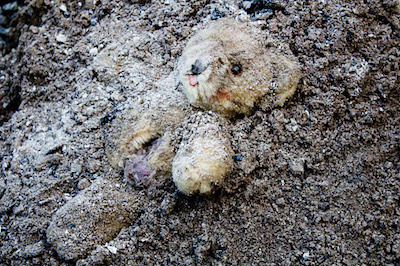All Search Results
-
My baby is spitting up: is this normal?
As a pediatric resident I get to see many newborn babies, and I often continue to care for them in our outpatient clinic as they grow. In my experience, spitting up is among the top concerns for mothers within the first few months of their babies’ lives. And why shouldn’t it be? More than half of all infants spit up daily. Well, before I give you some tips to help you manage this at home, I’d love to review some information that we as pediatricians keep in mind when we hear the words “spit up.”
-
RSV: When Is It Serious for Your Child?
RSV is so common that most children have been infected with it by the time they're 2 years old. The virus can cause complications, especially in infants, that require hospitalization. Here’s what you need to know.
-
One year later... how to help your children
As caregivers, we do our best to help and protect our children. When a tragedy like the pulse shooting happens, it is difficult for us as adults to make sense of it, much less to help our children do so. Usually, anniversaries of a tragedy bring back emotions and thoughts that may have already settled. Therefore, it is a good idea to have some tips handy in case you notice the following characteristics in your children that were not there before:
-
Ringworm: a common skin condition you can treat at home
A few weeks ago, I noticed a round, reddened area on my son’s leg. When I asked him what caused it, he told me he got it from falling off his bed. I found it difficult to believe he had fallen on something so perfectly round that it made a complete circle on his leg, and he couldn’t pinpoint anything in his room that caused the mark. (Three-year-olds aren’t the best source of medical information, as you might imagine). I accepted his explanation for a day or two, but when I gave it second look I realized that it wasn’t an injury at all but a ringworm infection.
-
Should your teen watch 13 Reasons Why?
If you have a teen or pre-teen in your house, you may have heard about the popular Netflix series generating a lot of buzz lately called 13 Reasons Why. It’s a show for and about teens adapted from a popular young adult novel of the same name, but it’s the controversial subject matter that has everyone from psychiatrists to school administrators ringing alarm bells.
-
Teaching Your Child Bicycle Safety
An easy and fun way for you and your kids to explore and get exercise is riding bicycles together.
-
Get to Know Clinical Geneticist, Dr. Ingrid Cristian
Clinical genetics is an area of medicine you may not be very familiar with, but it’s a rapidly evolving discipline that offers us much-needed clues about the how and why of disease.
-
5 Fast FACTs about Childhood and Adolescent Cancer Survivors
Helping your child beat cancer to enjoy the best possible quality of life is our goal at the Haley Center for Children’s Cancer and Blood Disorders at Arnold Palmer Hospital. For pediatric cancer survivors who are two years or more off therapy, our Follow-up After Cancer Treatment (FACT) Program provides support and care to meet the healthcare needs of a young cancer survivor.
.jpg?h=267&w=400&la=en)
-
What can kids do to help when disasters like Hurricane Harvey hit?
 Many relief organizations are asking for monetary donations and usable donated items for those that have been displaced from their homes. Kids can take up cash collections, whether they do this at school or with their family members. That cash can be turned into a check designated to a reputable charitable organization. Kids can also go through their own clothes, books, and toys and set items aside that can be used by children that have been impacted directly by the storm. Many agencies are asking for monetary donations in lieu of “stuff” at the moment, but there will come a time soon where families will need things. Parents can help kids by sorting and organizing items that can be donated, finding appropriate organizations for the donations, and sending them off when the time is right.
Many relief organizations are asking for monetary donations and usable donated items for those that have been displaced from their homes. Kids can take up cash collections, whether they do this at school or with their family members. That cash can be turned into a check designated to a reputable charitable organization. Kids can also go through their own clothes, books, and toys and set items aside that can be used by children that have been impacted directly by the storm. Many agencies are asking for monetary donations in lieu of “stuff” at the moment, but there will come a time soon where families will need things. Parents can help kids by sorting and organizing items that can be donated, finding appropriate organizations for the donations, and sending them off when the time is right. -
Myles for Brody, Walking for NICU Babies
On September 17, 2016, Brody Myles Santiago was born after just 23-weeks of gestation. Born at Winnie Palmer Hospital for Women & Babies, weighing 1 lb., 2 oz., and only 12 inches in length, Brody was given a 5 percent chance of survival. He spent 148 days in the Neonatal Intensive Care Unit (NICU) before graduating and heading home.






